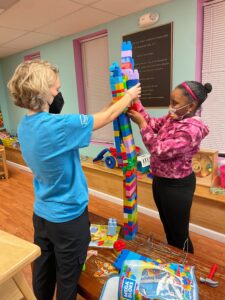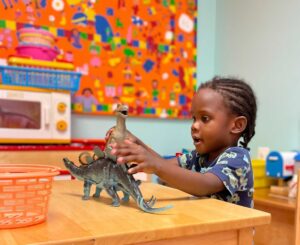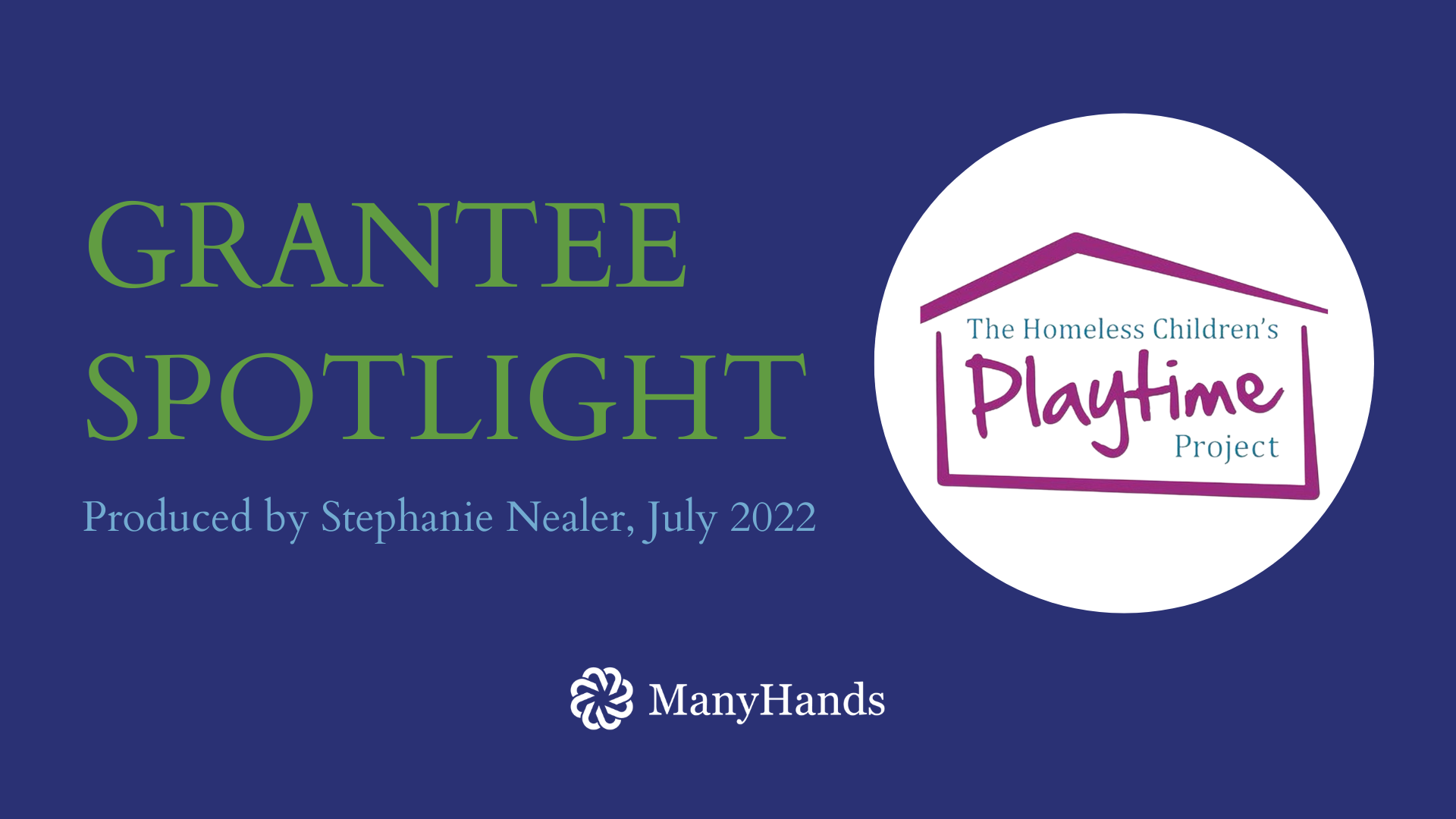In May 2021, Many Hands members voted to award the $100,000 Impact Grant to The Homeless Children’s Playtime Project, which cultivates resilience in children experiencing family homelessness by providing and expanding access to transformative play experiences. One year later, Many Hands member Stephanie Nealer caught up with the Playtime team to talk about their work over the past year, their relationship with the communities they serve, and the impact of Many Hands funding.
The 2021 Many Hands $100,000 Impact Grant to The Homeless Children’s Playtime Project allowed the nearly 20-year old organization to respond nimbly to the challenges presented by COVID-19 and expand its programs to bring in-person play to more children experiencing homelessness. Playtime’s Executive Director Jamila Larson says because the grant was for general operating funds, “Many Hands infused our budget with a level of flexibility to make sure we could respond more quickly as needs change.”
 Jamila notes Playtime served 321 children last year and expects to serve at least 350 in 2022. However, she says, during the pandemic fewer children have been living in homeless shelters where Playtime Project traditionally conducts its programs, so the DC-based nonprofit has pivoted to non-traditional models to find children and serve them where they are. She explains that many families experiencing homelessness are reluctant to bring their children to communal shelters where they risk being exposed to disease. Instead, she says, more children are living in the community—doubled up in relatives’ homes, in public housing complexes, or in motels converted into temporary housing sites.
Jamila notes Playtime served 321 children last year and expects to serve at least 350 in 2022. However, she says, during the pandemic fewer children have been living in homeless shelters where Playtime Project traditionally conducts its programs, so the DC-based nonprofit has pivoted to non-traditional models to find children and serve them where they are. She explains that many families experiencing homelessness are reluctant to bring their children to communal shelters where they risk being exposed to disease. Instead, she says, more children are living in the community—doubled up in relatives’ homes, in public housing complexes, or in motels converted into temporary housing sites.
Currently the majority of children served by Playtime are in Prince George’s County, and Playtime has expanded from its traditional model partnering with four homeless shelters in Washington DC to serve children at two shelters in Prince George’s County. Also this year, Playtime piloted a school-based program and plans to partner with more schools in the coming months. This summer, Playtime partnered with Campfire USA at a housing complex in Prince George’s County to provide summer camp programs for children living at the complex and for children staying at shelters in the county.
“It’s really a dynamic time for Playtime, as we’re continuing to grow and expand so we can reach more children where they are, not just in the shelter settings,” Jamila says.
She points out that each of Playtime’s shelter partners have different approaches to helping homeless families. Some are shelters for people fleeing domestic violence. Some are transitional housing programs for young mothers, and one shelter is in a hotel setting, without the space for group play programs. Playtime has had to adapt its play programs to meet the needs of families at each of these locations and the needs of children going through different circumstances. For example, during the pandemic, Playtime delivered Playkits full of toys and creative supplies to children living in places where they couldn’t hold in-person group programs.
Jamila says Playtime staff and volunteers develop important relationships with each family—earning the trust of the parents and creating a bond with each child. They work hard to meet the special needs of each child. “We really want to make sure that there’s room for everyone regardless of what each child’s needs are.”
When asked why their programs are dedicated to providing play opportunities for children, when families critically need housing, jobs, and food, Jamila says she recognizes that housing is a primary need. But, she adds, Playtime is “acutely aware that child development milestones won’t wait for our society to solve its affordable housing crisis. Child development happens every day. Homework assignments are due every day. Children are learning how to walk and talk every day.” Jamila says that’s why Playtime partners with housing programs that focus on providing that basic housing need, while the Playtime Project concentrates on child development needs.
—Stephanie Nealer


